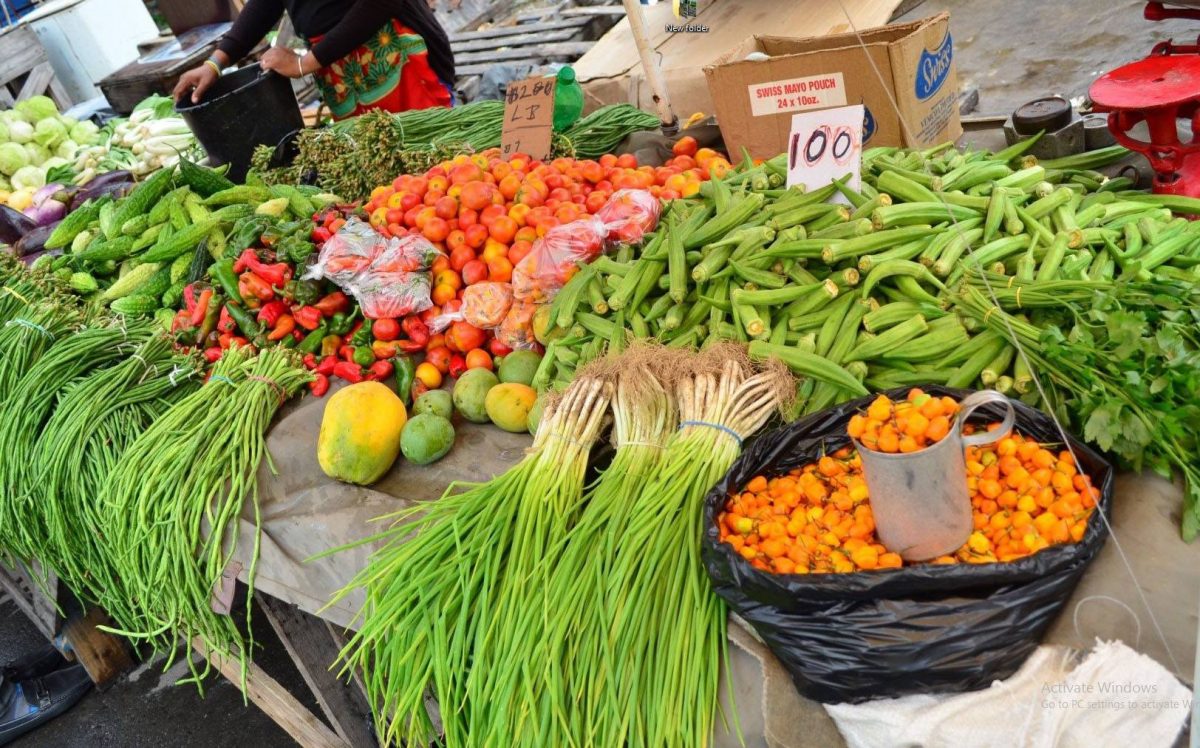The United Nations Food & Agriculture Organization (UNFAO) having declared 2021 International Year of Fruits and Vegetables (IYFV), it is expected that Guyana will play a lead role, not just locally, but at the level of the Caribbean Community (CARICOM) in ensuring that IYFV results in, among other things, an enhanced appreciation at the level of member countries of CARICOM of the importance of fruits and vegetables to the diet of their respective populations as well as, here in Guyana, a maximising of the local and overseas market opportunities that can be derived from fruit and vegetables sub-sectors of the agricultural sector.
The advent of IYFV comes at a significant juncture for the Caribbean insofar as food security is concerned.
It is no secret that CARICOM currently faces a regional food import bill that currently stands in excess of US$5 billion. There have been no discernible serious efforts to reduce that food import bill. Secondly and more immediately, the advent of the COVID-19 pandemic underscores the importance of drawing greater attention to the pursuit of fruit and vegetable cultivation as options for enhancing food security. Thirdly, the promulgation of IYFV has coincided with an enhanced local and regional interest in agro-processing as options for manufacturing, job-creation and for the preservation and consumption of fruits and vegetables.
Locally, and since one of the objectives of IYFV is to “strengthen the role of smallholder and family farmers in sustainable farming and production practices that account for the livelihoods of millions of rural families within the framework of the UN Decade of Family Farming (2019-2028),” it is altogether important for both public and private sector institutions and their respective partners in the agricultural and agro-processing industries to fashion and implement fresh, workable strategies for the use of food and vegetables to the country’s nutritional advantage as well as to its value-added one.
In addition to these pursuits, IYFV provides an opportunity for the creation of strategic, logistical, and technological options to counteract the high levels of food loss and waste in fruit and vegetable supply/value chains.
Here, and assuming Guyana’s high-profile participation therein, we are entitled to expect that the forum of this year’s planned UN Food Systems Summit will see Guyana’s active participation. One of the objectives of this event is to allow for the placing on the table of creative responses to global hunger problems that will enhance the country’s image as an actor on the international stage. Through that channel, Guyana can serve as a critical actor during the Decade of Action and delivery towards the SDGs.
Equally, one would imagine that Guyana can seek to use the opportunity afforded by IYFV to strengthen its position as the regional leader in the agricultural sector. Here, the possibility arises for the convening of a regional forum on fruit and vegetable cultivation and consumption to which extra regional participation can be extended and which can play the role of an important global attention-getter for the region as a whole.
As the United Nations has itself asserted, in the context of responding to and recovering from the COVID-19 pandemic, an assessment of the effects of the pandemic on food security and nutrition, including the importance of fruits and vegetables in boosting immunity has become a matter of global emergency.So too is the identification of urgent and coordinated actions to avoid the most adverse consequences of both the quantitative and qualitative challenges associated with food security. Accordingly, the UN has declared that food security and nutrition must be “a central element of international action and national policies and a
specific focus of partnerships.” It is essential, the UN says, that safe, nutritious, affordable foods, including fruits and vegetables, continue to get to all people, particularly the most food insecure and nutritionally vulnerable when they need it. We in Guyana must first make this a priority at the national level first.
It is no secret that there are concerns that the prevailing health considerations arising out of the COVID-19 circumstance could trigger a global food crisis, increasing risks to health and livelihoods for hundreds of millions of people. These shock waves from such a crisis will be felt across the fruit and vegetable sector.
Accordingly, policy measures should aim to address disruptions, setting the basis for long term sustainability and enhance coordination with all concerned actors along the food supply chain.
Locally, IYFV also provides manifest reason for farmers and agro processors – small operators, particularly – to be afforded a great deal more official attention and practical support. This applies, particularly, to the significant numbers of farmers and agro-processors whose fragile enterprises are, in some instances, being threatened by extinction on account of reduced production capabilities and market losses.






